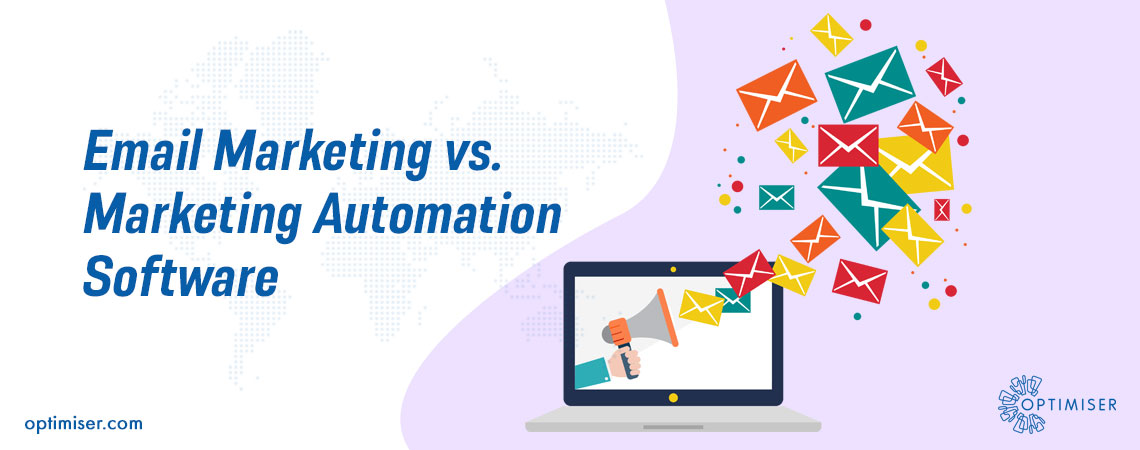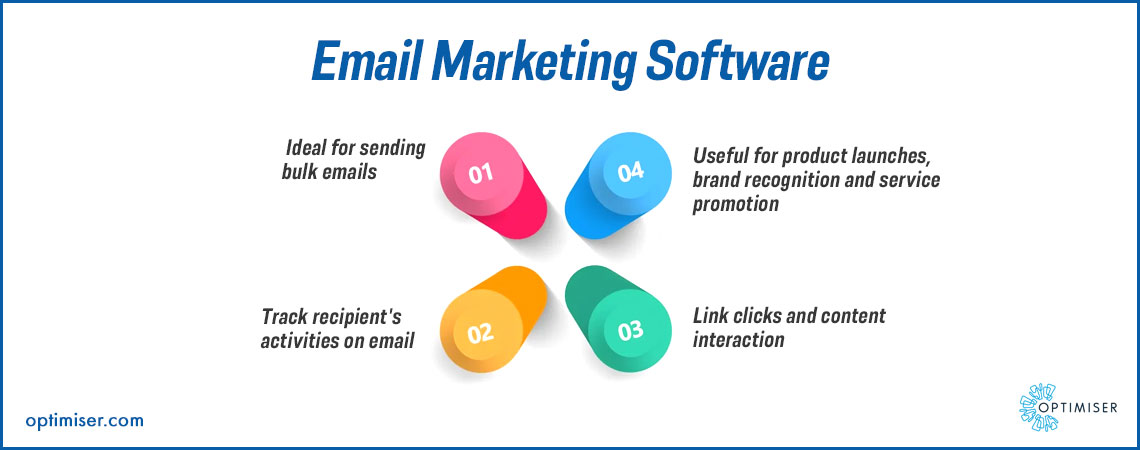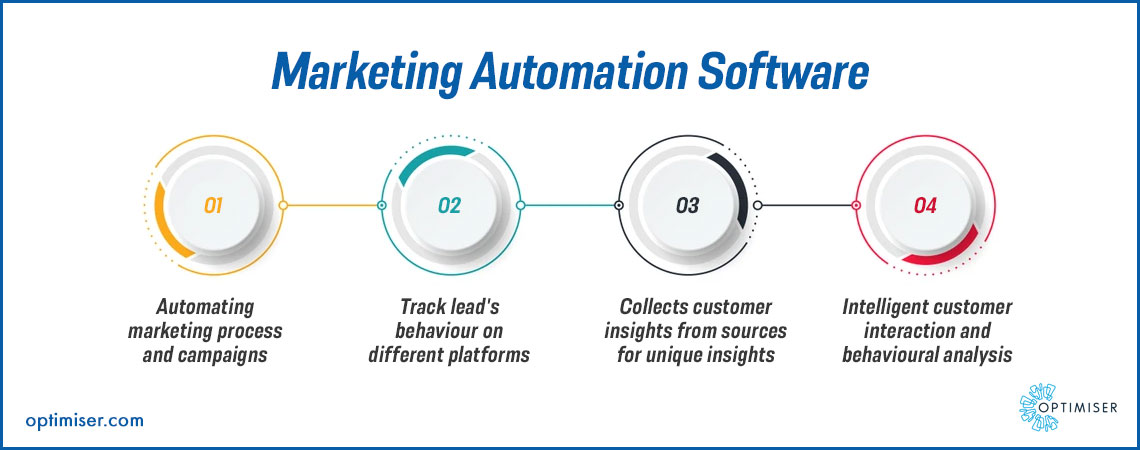
How Email Marketing Software is Different from Marketing Automation Software?
There are 4 billion users of email daily. And marketers send at least 3-5 emails to their customers per week. They need software to keep track of the interactions with the customers. While some prefer email marketing software, about 58% plan to adopt marketing automation technology.
Email marketing software
- An email marketing software automates the communication process between a business and its customers and prospects on an emailing platform. This software is used to maintain contacts in the email list and ensure their hygiene
- Alternatively, it is also used to monitor the effectiveness of marketing campaigns and improve the efficiency of email marketing. It is ideal for improving brand recognition, introducing new products and promoting services
- Email marketers use the software to automate and streamline the emailing process. It saves them time and resources as they do not have to send bulk emails manually or track the recipients' behaviour
Marketing automation software
- Marketing professionals use this software to automate the day-to-day marketing processes, and it allows end to end management of marketing campaigns. This includes tracking key metrics, designing campaigns, segmentation of customers, marketing analysis and even content publication
- Marketing automation software cuts down the need to accomplish any repetitive campaign creation, tracking of tasks across social media, email, website and other channels, and distribution of campaigns

What do Email marketing software & Marketing automation software have in common?
Both the software help streamline the business process by measuring the distribution of the marketing campaigns and help you in engaging your audience. However, the critical difference is that email marketing is limited to email marketing platforms and campaigns; marketing automation software extends to more channels and has a broader scope.
Comparison: Email Marketing vs Marketing Automation Software
-
Email Behaviour Tracking & Web Behaviour Tracking
The most significant comparison between the two is the platform where the data is collected.
From an email marketing tool, you can see the recipient's behaviour, like if the email sent has been opened, clicked on the link embedded, clicked the link, how many times they clicked it, etc. You can collect this data to see how many people interacted with your content and how many did not.
But on a marketing automation tool, you can see the email data and every lead's unique behaviour. Their activities are tracked, and interactions are stored. It follows them from an email to the website or the social media pages.
-
Single Path & Adaptive
Email marketing requires investment from the front end, including creating an email, segmenting the audience that will receive the emails, and post-delivery analytics. Based on how sophisticated your platform is, you will be able to send emails to different segments in your list with fresh content, but it carries a different message.
A marketing automation tool also requires work, but you will get more in return. You will have to create emails, plan campaigns etc., but the automated programs offer you more choices and options to pick from.
-
Simple Automation & Intelligent Follow-Up
Email marketing tools come with a simple follow up feature that ensures that the customers do not feel left out. But it depends upon the capability of every platform. For example, you can schedule a weekly email blast on a specific date.
Marketing automation platforms like Optimiser allow you to send automated responses based on customer action. Based on an If/ Then criteria, you can apply segmentation rules, send by time zones and even set up drip campaigns.
The key advantage of a marketing automation tool is that it can take intelligent action. It analyses the behaviour of the customer and rules out how to approach them. Simply put, it can be used as a forecasting tool to optimise the timing of the contact, the message to share and create suggestions for contacts.

Which tool is ideal for your organisation?
If most of your tasks include email marketing and your data is not extensive, i.e. limited to email recipients, then stick to email marketing software. Because if you get a marketing automation tool, you will be paying for more than you are using. It is not financially profitable.
But if your work is all about tracking user behaviour and monitoring the interactions with the audience on your social media channels and websites, pick a marketing automation tool.
To choose between one, you will need to know what your business needs and when you have an idea of which software to choose, you can begin your research for the right tool for implementation.
Summary
Both the tools are equally beneficial, depending upon the needs of an organisation, a business owner can implement them individually or together to achieve business success.

30 days free trial. No credit card required
 One powerful platform
One powerful platform
 Simple to use
Simple to use
 Comprehensive
Comprehensive



